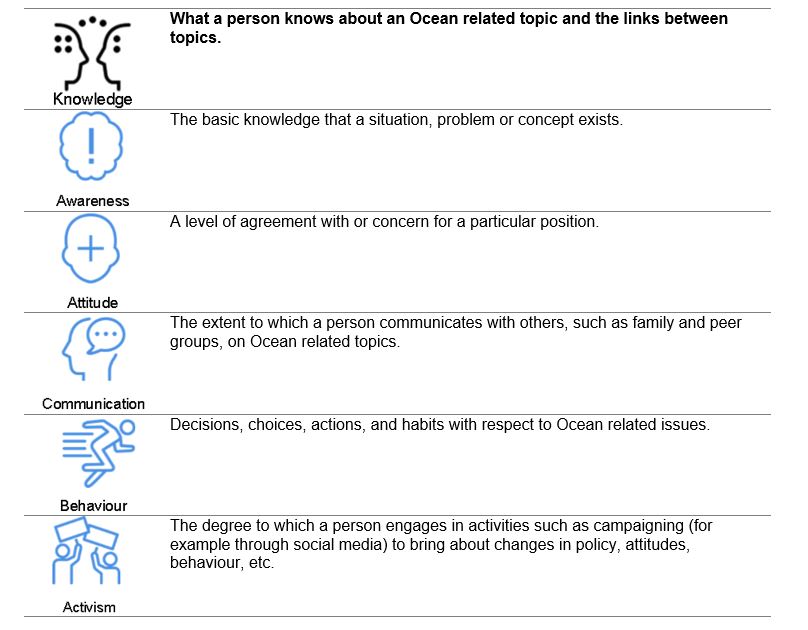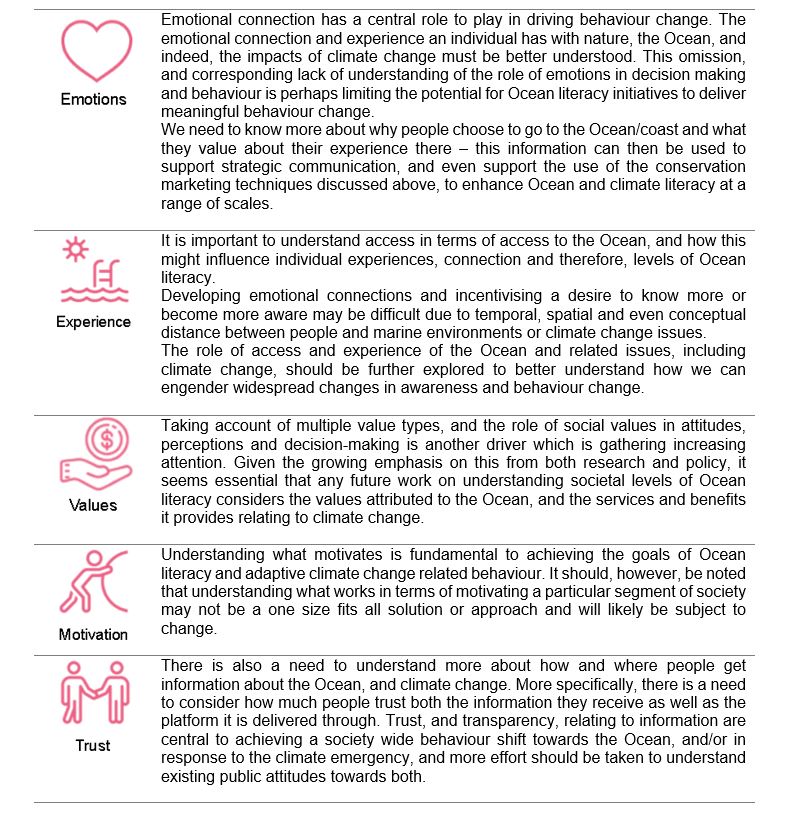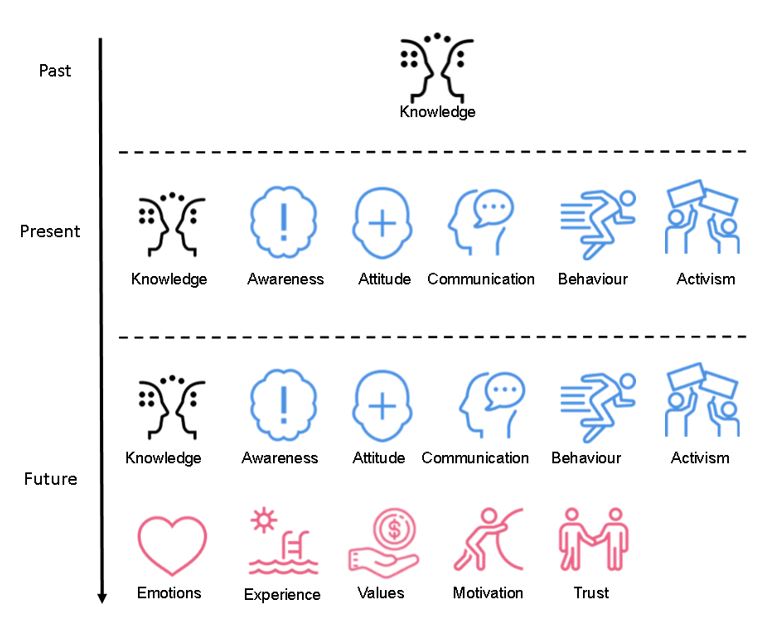An Ocean Literacy Review was commissioned by the Ocean Conservation Trust and Defra to study the link between Ocean literacy and behaviour change with policy recommendations on how this relationship can be improved in the future.
The review, written by Dr Daryl Burdon from Daryl Burdon Ltd. and Dr Emma McKinley from Cardiff University, has been completed for Ocean literacy professionals and this breakdown written by Helen Gowans, our Public and Community Engagement Manager, hopes to help everyone understand the review outcomes.
How has Ocean Literacy evolved?
The field of Ocean literacy has been developing since the 2000s; Initially, Ocean literacy was defined as “understanding your influence on the Ocean, and its influence on you”, and followed a knowledge deficit model. However, recent developments have seen the concept begin to evolve.
The pre-existing notions of Ocean literacy have expanded and now define six dimensions of Ocean literacy as: ‘knowledge’, ‘awareness’, ‘attitude’, ‘communication’, ‘behaviour’ and ‘activism’.

The academic review found that the meaning of Ocean Literacy is shifting to include emotional engagement as a key form of connecting the public to the Ocean. As such, Ocean literacy must be considered as being not only about increasing public awareness on the state of the Ocean, our impacts upon it and its impacts upon us, but also about providing tools and approaches to transform Ocean knowledge into behaviours and actions that promote Ocean sustainability (UNESCO, 2018).
How should we transform Ocean literacy to ensure it leads to behaviour change?
The main aim for the work was to see how Ocean literacy can more effectively connect the public with Ocean and Climate and what is missing from its current definition.
While Ocean literacy appears to have become the internationally recognised term for a myriad of concepts relating to improving how society perceives, understands, cares about and behaves towards the Ocean, this report highlights a number of other areas of work which should be considered and indicate that there are some gaps in the existing Ocean literacy model which might limit its capacity to deliver meaningful and long-lasting behaviour change. These include aspects of ‘emotions’, ‘access’, ‘experience and proximity’, ‘social values’, ‘motivations’, and ‘trust and transparency’.


The additional dimensions which should also be considered for inclusion within Ocean literacy in the future with a view to influencing behaviour change for both the Ocean, and in the context of climate change adaptation, include connection to the Ocean, emotions and empathy, motivations, and experience.
Measuring Ocean literacy
For Ocean literacy to be used effectively in policy development across the Ocean-climate nexus we need to have a better understanding of the link between Ocean literacy and climate-related behaviours; how to measure Ocean literacy across the UK; and the levels of Ocean literacy and climate-related behaviours in the UK population.
There are currently no UK-wide surveys which relate to all six currently recognised dimensions of Ocean literacy (‘knowledge’, ‘awareness’, ‘attitude’, ‘communication’, ‘behaviour’ and ‘activism’). From reviewing the surveys, it became clear that there were a much greater number of questions relating to ‘Attitude’, followed by ‘Knowledge and ‘Awareness’. Relatively few questions were focussed on the dimensions of ‘Behaviour’, ‘Communication’ and ‘Activism’.
There is also a need to further explore how enhancing Ocean literacy at different geographical scales and among different audiences or groups of people can be used to develop more effective Ocean policy and management, both for the UK and further afield.
There is currently a lack of data on Ocean literacy, and how this translates to behaviour change, collected at the UK level, and therefore we recommend that an Ocean literacy specific survey is developed and implemented for the UK.
To read the full Ocean Literacy Review please follow the link here.

